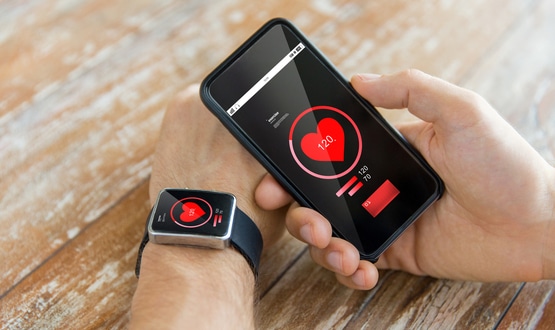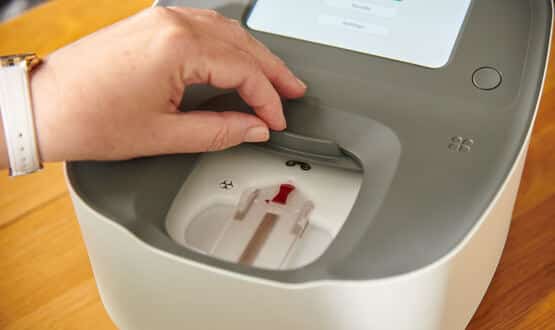Number of Manchester organisations join wearable health tech trial

Manchester University NHS Foundation Trust, The Christie NHS Foundation Trust and The University of Manchester are collaborating on a trial of wearable health technology for cancer patients.
Initially open to patients with blood, lung or colorectal cancer, the health sensors will allow doctors to monitor patients’ progress by producing a digital fingerprint of their vital signs. This information will give new insights into how people cope with cancer, and highlight what else can be done to improve recovery.
The trial has partnered with Zenzium Ltd, a health and biomedical data science company, who will be using artificial intelligence to analyse and identify key patterns within the data extracted.
The Enhanced Monitoring for Better Recovery and Cancer Experience (EMBRaCE) trial in Manchester will investigate a smart ring from Oura, the Withings ScanWatch hybrid smartwatch and the Isansys system which is worn on the chest. They’re able to monitor vital signs such as electrocardiogram (ECG), heart rate, temperature, physical activity levels and sleep.
Steve Sweeney, chair of the group of patients who have advised the project said: “We know patients have anxiety around ongoing monitoring and the gap between GP and hospital cancer care, issues with fatigue and sleep disturbance, problems maintaining fitness and the need for greater psychological support.
“The EMBRaCE programme addresses these challenges head on, allowing participants to take more proactive control of their cancer journey through wearables and the data they provide clinicians.”
The Manchester EMBRaCE trial is funded by the GM Cancer Digital Innovation Fund, UK Research and Innovation and the National Institute for Health Research.
In a similar vein, Careology – a digital cancer care platform that uses wearables to monitor patients – is hoping to transform cancer care and better equip clinicians with its platform.
Dr Michael Merchant, senior lecturer in proton therapy physics, at The University of Manchester, added: “This trial will assess if the latest wearable technology has a role in cancer care. It will help us to identify ways that clinical staff can individualise treatment before, during, and after therapy.
“We will find out if 24/7 data from these wearable sensors can be used to support patient recovery and provide accurate measurement outside clinic. It could even support the development of new cancer treatments by developing a digital platform for clinical trials in cancer involving wearable devices or fitness trackers.”




